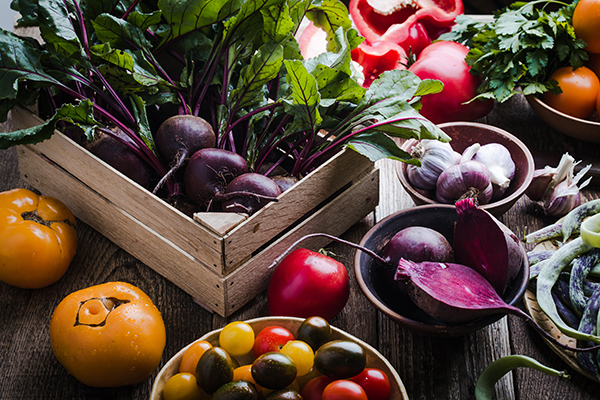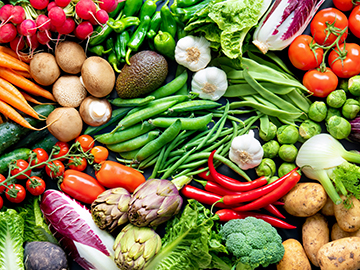Knowing where the things we buy come from is becoming increasingly important to more and more of us. We want to know; Who made it? Were they treated well? How much were they paid? What ingredients are used? Is it safe?
When so many questions come to mind just for a single product, we can quickly see why companies are starting to take responsibility for answering these questions and give reassuring answers to their customers.
However, what responsible sourcing, sometimes referred to as supply chain responsibility, actually means in practice can vary hugely from company to company.
For us responsible sourcing means ensuring that the choices we make about what we buy and how we work with our suppliers benefit the health of our consumers, the livelihoods of our suppliers, and also protect the planet.
Did you know that Sodexo buyer’s source 10 billion euros in worth of items, such as food, commodities and equipment, from approximately 150,000 suppliers every year?
Through the huge quantity and variety of what we buy across the world, we are conscious that we have the power and responsibility to make a difference in the way we source our products. Watch Hind Bendaoud, VP Global Responsible Sourcing, share more on this topic in this video:
Has this video sparked your interest? Do you have questions? Scroll on…
How can sourcing impact the health and wellbeing of consumers?
 The food we source ultimately ends up on our consumers plates.
The food we source ultimately ends up on our consumers plates.
We have very strict standards for selecting products and suppliers in order to ensure we source safe, nutritious and quality food but we are also sourcing healthier raw materials, including more plant-based ingredients. But why are they healthier?
Plant-based ingredients include fruits, vegetables, grains, beans, legumes and nuts which are rich in fibre, vitamins and other nutrients. Following a plant-based diet has been proven to lower the risk of many chronic diseases including type 2 diabetes, high blood pressure, heart disease, cancer and Alzheimer’s.
An example of plant-based menus is our Future 50 recipes which includes lesser-known varieties of grains, sprouts, root vegetables, nuts, and beans. As well as being better for people’s health, the lower carbon footprint of these ingredients makes them better for the planet too.
Plant-based meals have become increasingly popular with our consumers. In fact, 42% of global consumers now declare themselves to be flexitarians.
What are the benefits of sourcing products locally?
 We’ve mentioned that we buy from local businesses. But what are the benefits of doing this?
We’ve mentioned that we buy from local businesses. But what are the benefits of doing this?
Small and medium enterprises (SMEs) are the heart of their local communities. These small companies provide local jobs, generate growth and support their local communities.
Buying from SMEs allows us to support local communities around the world. Products that are grown or created and sold locally also travel a much shorter distance to reach their consumer, reducing carbon miles and air pollution.
We currently spend 1.3 billion euros each year with SMEs, and our goal is to keep building on this.
Our global Supply Chain Inclusion Program supports SME vendors and those owned or operated by women or minorities to supply their products to us. We believe that a diverse range of suppliers bring value and innovation to our businesses.
Find out more about the other ways we support local communities through the way we source products
How does sourcing responsibly reduce carbon emissions?
We’ve said that we’re building a low-carbon supply chain, but why? What does sourcing have to do with carbon anyway?
Half of Sodexo’s carbon emissions come from its supply chain, primarily from meat and dairy products, palm oil and paper, which also drive deforestation. By reducing the quantity of the products with high carbon impact we source, we can reduce our carbon emissions overall.
We are actively promoting low carbon products and also choosing to work with suppliers that share our commitment to reducing emissions.
We know that creating a low carbon supply-chain will help us to reach our target to cut our carbon emissions by 34% by 2025.



